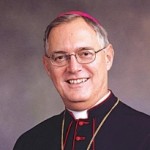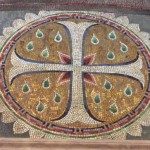A good read for today, Joseph Bottum takes a serious and interesting look at the decline in the political influence of the Catholic Church, even as Catholic “thinking” ascends.
“…Somewhere in the last 50 years, however, the mainline Protestant churches went into catastrophic decline. The reasons are complex, but the result is clear. By the 1970s, a hole had opened at the center of American public life, and into that vacuum were pulled two groups that had always before stood on the outside, looking in: Catholics and evangelicals.”
[…]
Still, the national prominence of, say, John Cardinal O’Connor before his death in 2000 seemed the natural order of things: Archbishops of New York have always occupied a powerful place in American affairs–or, at least, they always used to occupy a powerful place. O’Connor’s successor, Edward Egan, appears mostly to wish he belonged to the Church Invisible, and he remains little known even to his fellow New Yorkers. With some exceptions (such as Archbishop Charles Chaput of Denver and Francis Cardinal George of Chicago–neither, it is worth noting, implicated in the cover-up of the priest scandals), the vast majority of America’s bishops have joined Cardinal Egan in full retreat from public engagement.
[…]
In one sense, such claims are palpable nonsense: Among the Democratic senators on the Judiciary Committee, Patrick Leahy, Ted Kennedy, and Richard Durbin are just as officially Catholic as Samuel Alito, the nominee they spent four days grilling last week. Of course, those same senators are manifestly not believers in the coherent system of Catholic thought in the American context that a set of (mostly) conservative theorists have developed in the 33 years since Roe v. Wade was handed down. The Committee for Justice simply got the phrasing wrong. In truth, for the Democrats, Catholics are more than welcome. It’s Catholicism that’s right out the window.
You’ll want to read the whole thing.











